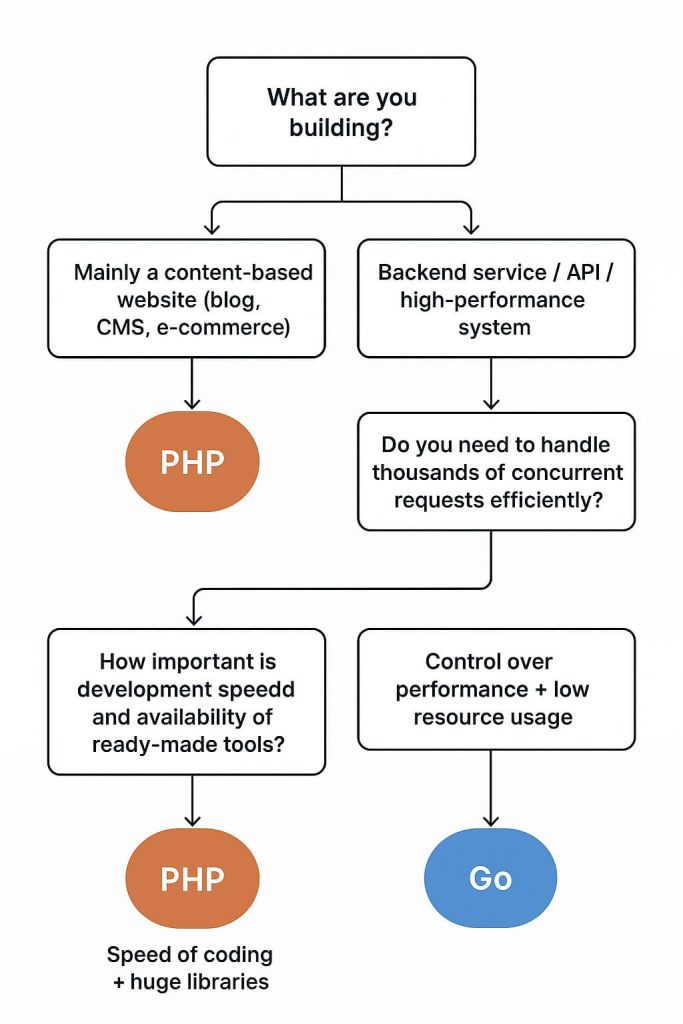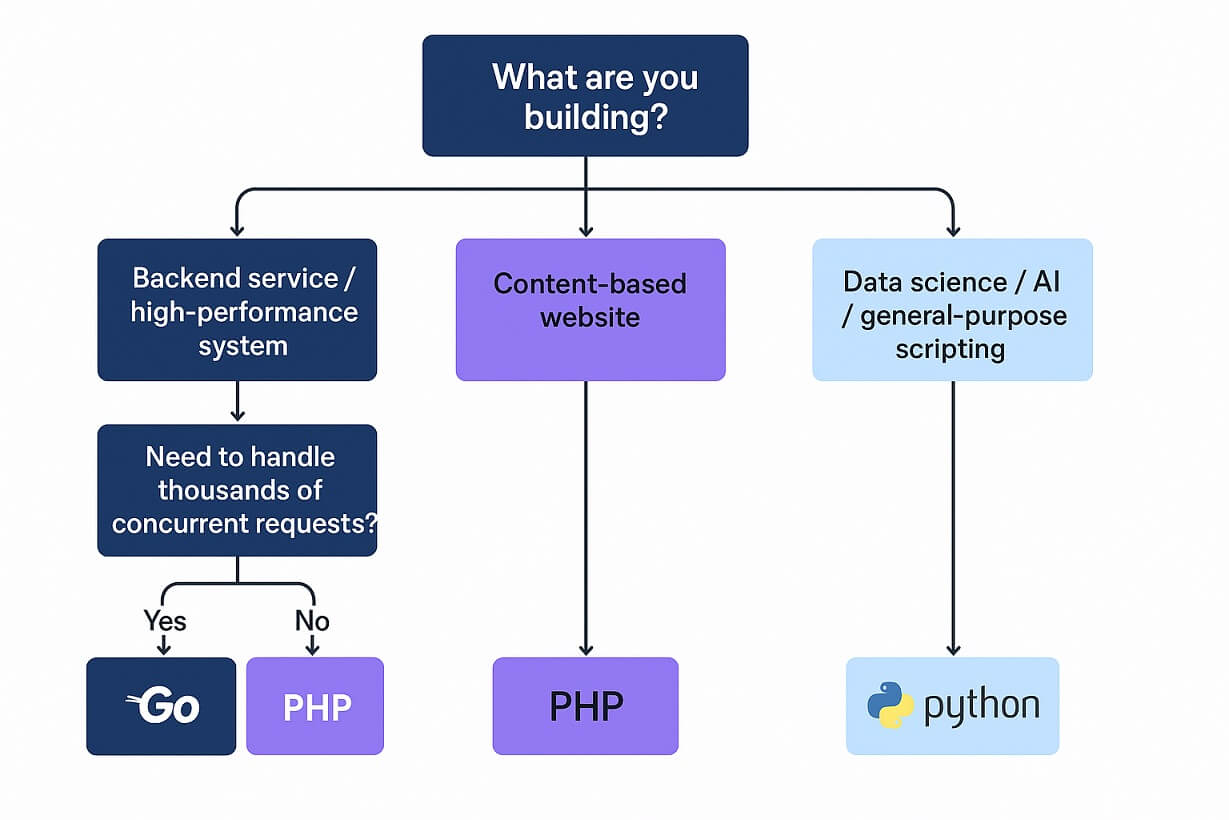Here’s the clear comparison first, then I can also make it into a flowchart like before.
1. Performance
- Go 🏎 — Compiled, very fast, great for concurrency.
- PHP 🚲 — Interpreted but optimized for web, fine for most CMS-driven sites.
- Python 🚗 — Interpreted, slower than Go, but often “fast enough” with proper scaling; strong library support.
2. Concurrency
- Go — Built-in concurrency primitives (goroutines, channels) → high scalability.
- PHP — No built-in concurrency model (relies on web server).
- Python — Async via
asyncio, threading, multiprocessing — good, but less natural than Go.
3. Ecosystem
- Go — APIs, DevOps, microservices, distributed systems.
- PHP — Websites, CMS (WordPress, Drupal, Laravel).
- Python — AI/ML, data science, automation, scripting, web (Django, Flask, FastAPI).
4. Learning Curve
- Go — Simple syntax but strict typing, great for systems dev.
- PHP — Easy for web beginners.
- Python — Very beginner-friendly, clean syntax, huge community.
5. Hosting & Deployment
- Go — Compiled binary, easy containerization.
- PHP — Extremely easy to host anywhere.
- Python — Requires virtualenv, pip, or containers; hosting is common but not as universal as PHP.
6. Best Use Cases
- Go → High-performance APIs, microservices, concurrent systems.
- PHP → Web CMS, e-commerce, quick site builds.
- Python → AI, data analysis, scripting, backend APIs (FastAPI), automation.
💡 Rule of Thumb
- Want maximum concurrency & speed? → Go
- Want fast CMS-driven web development? → PHP
- Want data science, AI, or general-purpose scripting? → Python

